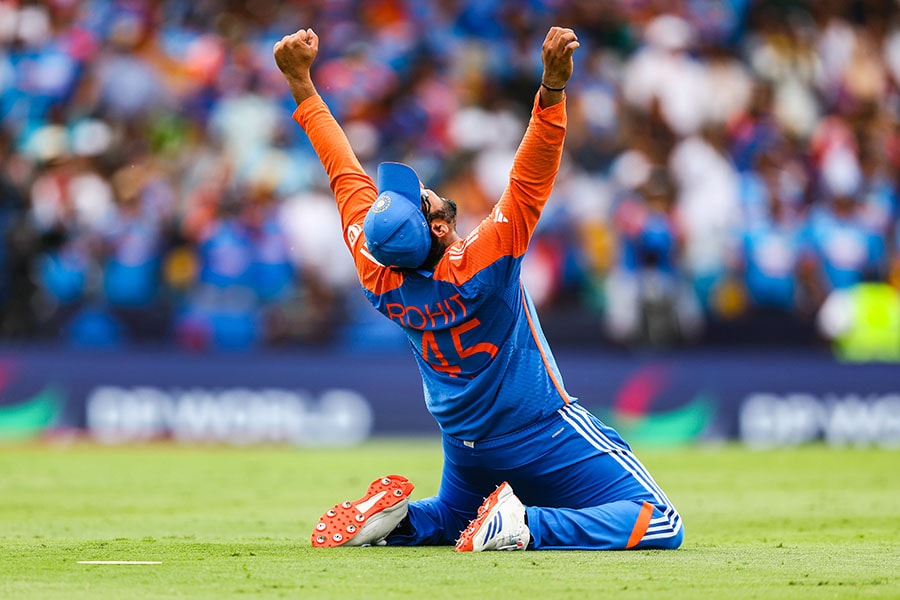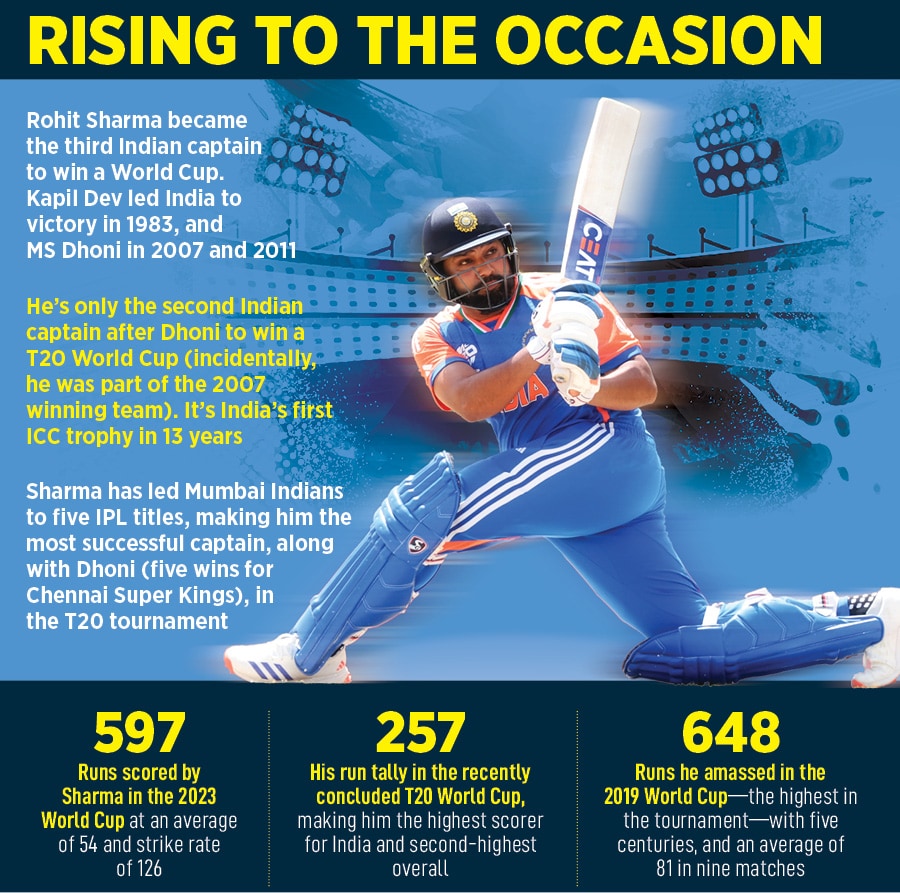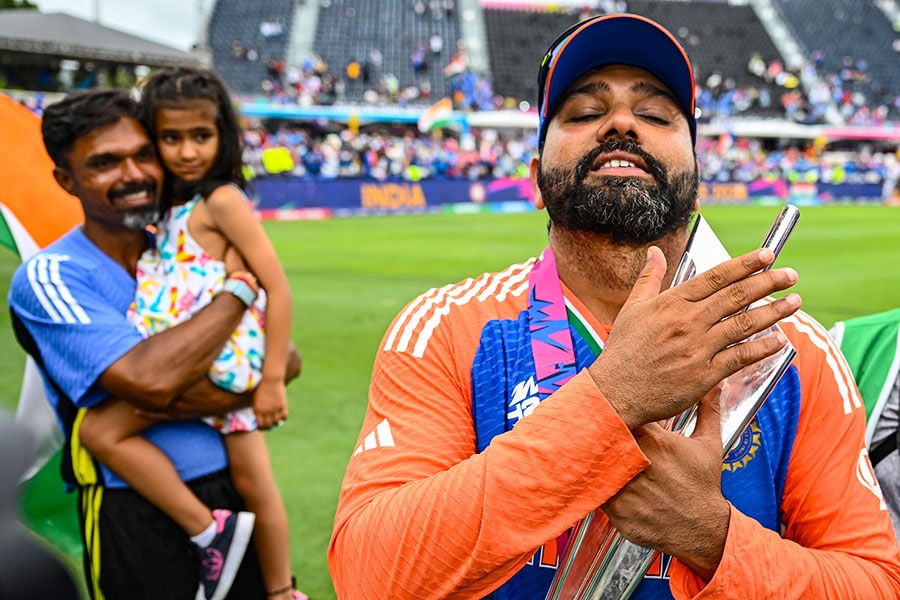
Rohit Sharma: Intent, aggression and unfinished agenda
The skipper is only the second Indian cricket captain after MS Dhoni to win a T20 World Cup. His ploy to attack from the start, score briskly, and lead with purpose have played a key role in India winning its first ICC trophy in 13 years
 Rohit Sharma of India celebrates after the final ball of the ICC Men's T20 Cricket World Cup West Indies & USA 2024 Final match between South Africa and India at Kensington Oval on June 29, 2024 in Bridgetown, Barbados.
Image: Darrian Traynor-ICC/ICC via Getty Images
Rohit Sharma of India celebrates after the final ball of the ICC Men's T20 Cricket World Cup West Indies & USA 2024 Final match between South Africa and India at Kensington Oval on June 29, 2024 in Bridgetown, Barbados.
Image: Darrian Traynor-ICC/ICC via Getty Images
After a humiliating 10-wicket drubbing against England in the semi-finals of the 2022 T20 World Cup, Rohit Sharma admitted that India’s approach would need to change if it had to win major titles. Batting first in that game in Australia, India scored a below-par 168 for six wickets. England chased the target with four overs to spare.
Dinesh Karthik, a member of that Indian team, describes the realisation as the turning point in Sharma’s captaincy. “He decided this is not the way to play… we need to play a lot more aggressively. And from then on, there has been a conscious effort to bat differently,” the former India wicketkeeper-batsman said in a video posted by the International Cricket Council (ICC) last week.
Sharma didn’t merely leave it at that, but led from the front, especially in the 50-over World Cup at home in 2023. The opening batsman gave India blistering starts throughout the tournament, deflating the morale of the opposition bowlers and taking them to the cleaners from the word go. He scored 597 runs in 11 innings at an average of 54 and strike rate of 126.
More importantly, his selfless approach—he hit 66 boundaries and 31 sixes (the most in the tournament)—ensured that the likes of his opening partner Shubman Gill and those who followed them—Virat Kohli, Shreyas Iyer, KL Rahul—could bide their time in the middle and build their innings. The skipper had five 40-plus scores to go with three half-centuries (including two knocks of 86 and 87) and a ton, indicating that his batting style remained the same irrespective of his individual score. “Rohit has cracked open games for us,” admitted Team India coach Rahul Dravid.
In the recently-concluded T20 World Cup that India won, the 37-year-old was the highest scorer for his team (and second-highest overall) with 257 runs at a strike rate of over 156. Of the three half-centuries against his name, the most defining one was against Australia where his fiery knock of 92 off 41 balls (eight sixes, seven fours) in the Super Eight game set the tone for India’s victory. His brutal assault of Australia’s premier bowler Mitchell Starc was breathtaking and a thumping statement of sorts.




















